Page 330 of 352 pages « First < 328 329 330 331 332 > Last »
Hugging blood relatives

Description:
Hugging blood relatives. (Words of Beaula McCalla.)
Beaula McCalla, an Afrikan-Caribbean Briton who traced her ancestry, hugging some of her Bubi blood relatives for the first time. They live in the village of Moka, on the Island of Bioko, Equatorial Guinea.
Equatorial Guinea was a former Spanish colony.
Date: 2002
Copyright: Copyright Beaula McCalla
Compensation return
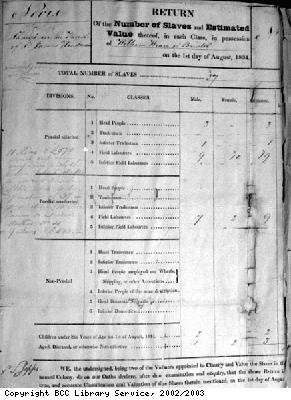
Description:
Compensation return for William Weare of Bristol for 37 slaves in his possession on 1st August 1834.
The Abolition, or end, of slavery happened in 1834.
The slave owners and their supporters accepted the loss of their property (slaves) in return for compensation (money) from the government. £20 million was paid to slave owners by the British government, as compensation for this loss. Slave owners in Bristol received over £500,000 (worth about £25 million today); a vast sum at that time.
Date: 1st August 1834
Copyright: Copyright BCC Library Service
Page of log book of ship Lloyd, 1771
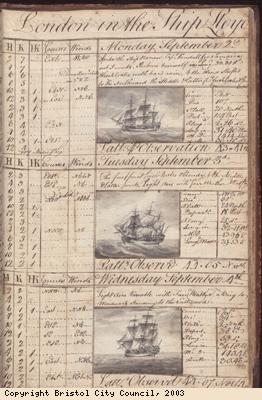
Description:
Page from the log book of the Bristol ship, the Lloyd. A voyage from Dominica to London, 1771.
Date: 1771
Copyright: Copyright BCC Record Office
Object ID:BRO 38032
List of slaves 1795
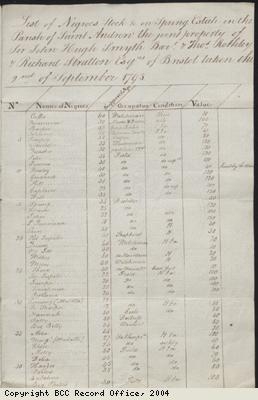
Description:
Front of list of slaves with a value of £24,888, on Spring Plantation, Jamaica.
Date: 1795
Copyright: Copyright BCC Record Office
Object ID:AC/WO 16 (27) 166 (d)
Head of an oba
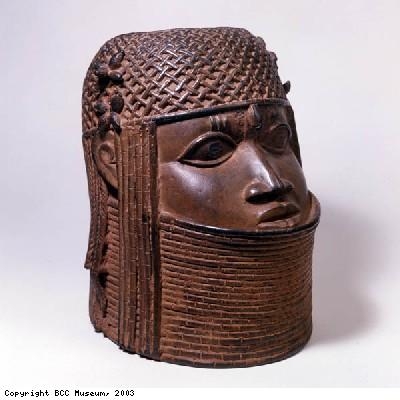
Description:
Head of an oba (king), from the Edo people of Benin, West Africa, mid to late 16th century. When each oba died, a shrine was made in his memory. Brass heads like this one were placed on the shrine, alongside ivory tusks amd other items. All the objects in the oba’s palace were removed by a British naval expedition in 1898. Benin came under British control and the Oba was sent into exile.
Creator: Edo
Date: Mid to late 16th century
Copyright: Copyright BCC Museum
Object ID:Ea 7821
Jamaican farmer or Beekeeper
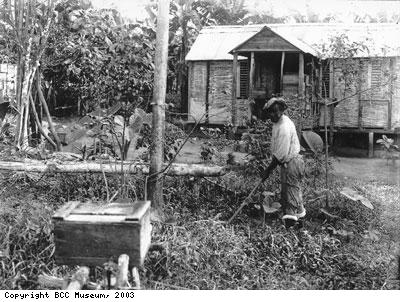
Description:
Photograph: Jamaican farmer or Beekeeper. In Jamaica, many freed slaves established their own smallholdings.
Creator: Harry H Johnson
Date: 1908 - 1909
Copyright: Royal Geographical Society
Quilters at work

Description:
Quilters at work at The Golden Agers Club, Easton, Bristol.
Date: 2003
Copyright: Copyright Golden Agers Club
Commemorative Emancipation medallion

Description:
One side of a commemorative medallion, for the abolition of slavery, 1834.
Date: 1834
Copyright: Copyright BCC Museum
Object ID:0.4259
Historic site, statue of Edward Colston
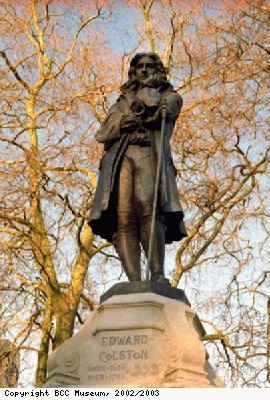
Description:
Historic site, the statue of Edward Colston, (about 1895), in The Centre, Bristol. This statue of Colston idealises him as a respected and charitable Bristol merchant and is silent about his role as a member of the Court of Assistants to the Royal African Company, a trading company which had official control over the slave trade until 1698. Colston was also a prominant sugar merchant with interests in the Caribbean island of St. Kitts. He contributed to many of the city’s educational institutions, hospitals and housing, as well as restoring a number of churches. Colston’s Day is commemorated every November by the Bristol schools and charities founded in his name. His relationship with the city is still a topic of debate amongst the citizens of Bristol. Some feel that his statue and the hall named after him should be removed, or renamed respectively, in memory of enslaved Africans and in respect for their descendants.
With thanks to the authors of the Slave Trade Trail around Central Bristol, Madge Dresser, Caletta Jordan, Doreen Taylor.
Date: about 1895
Copyright: Copyright BCC Museum
The Ivy Church

Description:
The Ivy Pentecostal Church, Ashley Hill, Bristol.
In the 19th century, a runaway slave called Henry Parker came to Bristol. He became a lay preacher at the Ivy Church. Some of his descendants still live in the Bristol area.
The congregation of the Ivy Church today consists of black and white members, who meet and worship together.
With thanks to the Ivy Church for giving their permission.
Creator: Andy Cotton
Date: 2003
Copyright: Copyright BCC Museum
Page 330 of 352 pages « First < 328 329 330 331 332 > Last »

